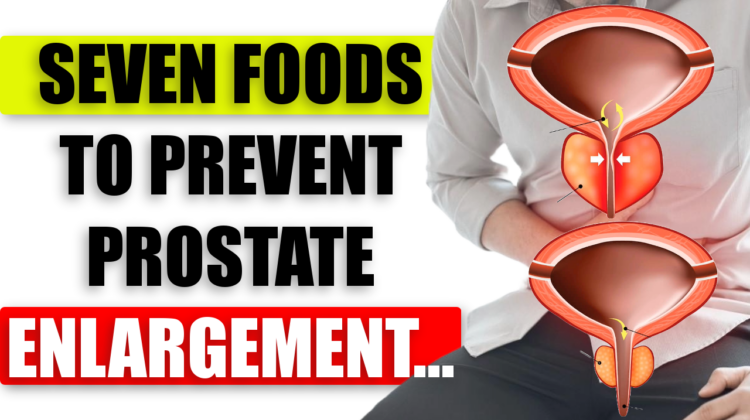
Prostate enlargement, or Benign Prostatic Hyperplasia (BPH), entails a non-cancerous expansion of the prostate gland. The enlarged prostate compresses the urethra, leading to urinary difficulties. In this video, we introduce seven foods rich in essential vitamins and minerals aimed at averting prostate enlargement.
1. Sesame Seeds.
According to the Indian Journal of Urology, sesame seeds are abundant in zinc, making them crucial for prostate health. Individuals susceptible to BPH or prostate cancer often exhibit lower zinc levels (sometimes up to 75% lower) compared to those with healthy prostates.
Opting for dietary zinc is preferable as it is more readily absorbed than zinc supplements. Incorporating zinc-rich foods like sesame seeds, almonds, adzuki beans, and pumpkin seeds into your diet can greatly benefit your body.
2. Tomatoes.
As indicated by the National Cancer Institute, the consumption of tomatoes can mitigate the risk of prostate cancer development due to their lycopene content.
Research suggests that lycopene has minimized the advancement of BPH among participants and aids in decreasing the prostate-specific antigen (PSA) associated with prostate inflammation, BPH, and prostate cancer. It’s advisable to incorporate lycopene-rich foods alongside natural fats such as avocado and nuts to augment absorption.
3. Bell Peppers.
According to Mayo Clinic, vitamin C plays a crucial role in combatting BPH. Vitamin C suppresses HIF-1alpha, a molecule that exhibits high expression levels in individuals with BPH and prostate cancer.
Bell peppers are abundant in vitamin C, with nearly 200% of the recommended daily intake found in just one cup of raw bell peppers. Incorporating them into your diet can help mitigate the risk of prostate enlargement.
4. Avocados.
Research suggests that avocados aid in alleviating symptoms associated with BPH, promoting improved urine flow and reducing residual urine in the bladder. This is attributed to avocados being rich in Beta-sitosterol, a naturally occurring plant sterol. Other foods abundant in beta-sitosterol include pumpkin seeds, wheat germ, soybeans, and pecans.
5. Tofu.
Tofu proves highly beneficial for treating men with an enlarged prostate. It diminishes cancer cell proliferation within the prostate and combats lower urinary tract symptoms associated with BPH. Tofu or soy contains genistein, an isoflavone documented to decelerate prostate tissue growth and impede prostate enlargement.
6. Salmon.
Obesity heightens the risk of an enlarged prostate. Incorporating Omega-3s into your diet, coupled with consistent exercise, can aid in weight management.
Salmon is a notable source of omega-3 fatty acids, which offer protection against cardiovascular disease, cancer, rheumatoid arthritis, inflammation, and weight gain. Omega-3s can also be obtained from walnuts, ground flax seeds, chia seeds, and canola oil.
7. Berries.
The antioxidants and vitamin C found in berries such as strawberries, blackberries, and raspberries are pivotal in safeguarding against damage caused by free radicals. Vitamin C functions as a free radical scavenger, exerting its antioxidant properties. Consuming berries can alleviate BPH symptoms.
Chris Mohr, a distinguished nutrition expert featured in the New York Times and an advisory board member for Men’s Fitness magazine, advocates for a smoothie recipe comprising blueberries, banana, greens, peanut butter, milk, and protein powder.
Regular inclusion of this straightforward smoothie in your diet may aid in preventing an enlarged prostate.
To sum up, implementing straightforward adjustments to both lifestyle and diet, such as reducing red meat intake and increasing the consumption of fruits and vegetables, can yield significant benefits. Nonetheless, it remains crucial to engage in open communication with your doctor regarding any symptoms and to seek medical guidance.